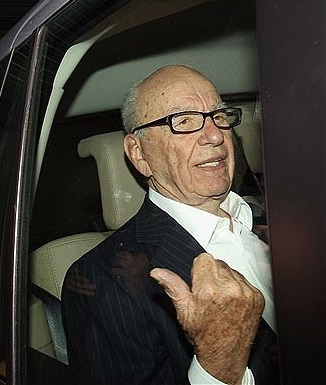Talks halt on Foxtel's run for triple threat
 Clandestine negotiations have been going on between Telstra and News Corporation to launch a Foxtel-branded broadband service, but reports say the talks have now hit a snag.
Clandestine negotiations have been going on between Telstra and News Corporation to launch a Foxtel-branded broadband service, but reports say the talks have now hit a snag.
The Australian Financial Review says Telstra would not tell Foxtel how much it would charge for access to its network - likely due to uncertainty and negotiations on its $11 billion deal to roll-out the National Broadband Network.
The stymied talks will further annoy the Murdoch media brand, which has recently had broadband providers, free-to-air networks and foreign interlopers threaten its pay-TV monopoly.
Reports say Foxtel chief executive Richard Freudenstein has drawn up a full business plan for a mass-market broadband service, trying to make Foxtel a triple threat; covering internet, telephony and pay-TV to reach millions of homes across platforms.
Reports claim some Foxtel executives are annoyed now that the confidential negotiations have dragged-out for more than 12 months. It would be a big fish to land for Foxtel, but it is made more complex by the fact that Telstra and Rupert Murdoch’s News Corporation each own 50 per cent of the pay TV business. Foxtel is Australia’s most profitable media company, generating operating earnings of $944 million last financial year.
Allegedly, leaked internal memos say the company is already recruiting to deliver the “triple-play” when a deal is eventually struck.
Foxtel would be prohibited from launching a broadband service unless it uses Telstra as its wholesale provider, according to standing agreements. It is believed that agreement may not expire until 2020. One analyst, who was not named, said: “If Foxtel went to market as an independent company there is no doubt Telstra would effectively be creating their single biggest competitor. There is no way Telstra will let that happen. It’s an incredibly difficult situation for Foxtel.”
News Corp chief executive Robert Thomson told investors in New York last week that a “triple play offer” had great appeal because it would increase customer “stickiness” and help Foxtel lift its “stubborn” 30 per cent take-up by the Australian population.








 Print
Print